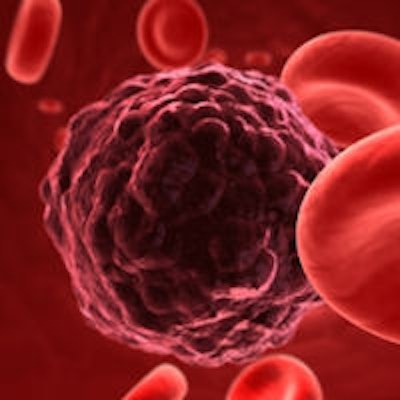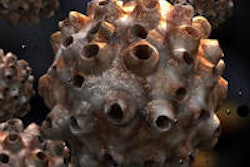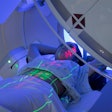
The human papillomavirus (HPV) vaccine affords strong protection against oral HPV16/18 infections, according to a new study in PLOS One (July 17, 2013).
The findings suggest the vaccine may reduce the risk of HPV-positive oropharyngeal cancers, in particular HPV16, the type most commonly associated with this cancer.
HPV infection, particularly with type 16, is causing a growing number of oropharyngeal cancers (OPC), with a strong predominance of HPV16, which is detectable in about 90% of HPV-positive cases, according to the study authors.
A recent study showed that in the last 20 years, HPV detection in tumor specimens increased from 16% to 70% in the U.S., the study's team of international researchers noted. They estimated that in the next few decades in the U.S., there will be more cases of HPV-positive oropharyngeal cancer than of cervical cancer, in which virtually all cases are attributable to HPV.
Vaccine types
Randomized trials have provided strong evidence for the high efficacy of two virus-like particle vaccines: the bivalent HPV16/18 vaccine (Cervarix, GlaxoSmithKline Biologicals) and the quadrivalent HPV 6/11/16/18 vaccine (Gardasil, Merck Sharp & Dohme) against cervical, vaginal, and vulvar infections, and also against anal HPV16/18 infections in women.
Among men, the efficacy of the quadrivalent vaccine has been demonstrated against HPV-associated external genital lesions and against anal HPV and intraepithelial neoplasia among men who have sex with men.
In this randomized clinical trial, the researchers analyzed the efficacy of the bivalent HPV16/18 vaccine against cervical infections. As part of the investigation, the researchers also wanted to see how well the vaccine worked to prevent oral HPV infections four years after vaccination.
A total of 5,840 Costa Rican women 18 to 25 years old participated in the study; half received the HPV16/18 vaccine and half received the hepatitis A vaccine as the control group. They provided oral specimens to evaluate the vaccine efficacy (VE) against oral HPV infections.
The VE against prevalent oral HPV16/18 infections was significantly higher than against corresponding cervical HPV16/18 infections (p = 0.04), the study authors found.
This finding is consistent with the possibility that most oral infections were incident, with very few prevalent at enrollment and persisting for four years, the researchers noted. Further, oral sex tended to start later than vaginal sex among the study group, which would also result in a larger fraction of oral infections being acquired after vaccination compared with cervical infections.
The study did not find a clear association of oral HPV infection with oral sex.
Men as well as women
The researchers estimated that the vaccine efficacy against oral HPV16/18 infection four years after first vaccination was 93.3% (one woman who received the HPV16/18 vaccine developed an oral infection; 15 women in the control group had oral infections; 95% confidence: 62.5% to 99.7%).
Type-specific VE was 91.6% against HPV16 and 100% against HPV18. The corresponding VE against prevalent cervical HPV16/18 infection for the same cohort of women at the same visit was 72.0%. The VE estimate against cervical HPV16 was similar to that against HPV18.
Therefore, in the sensitivity analysis excluding HPV-positive results from retested specimens, the VE against oral HPV16/18 infections was 100.0%. When excluding women who were HPV16/18-positive in the cervix at the enrollment visit, VE was 91.7%.
"In this first report evaluating efficacy of an HPV vaccine against oral infection, we observed, as part of a randomized trial of the bivalent vaccine among young women in Costa Rica, a 93.3% reduction of prevalent oral HPV 16/18 infection in the vaccine arm compared to the control arm approximately four years after vaccination," the researchers wrote.
There is limited knowledge about natural history of oral HPV infection, and the quantitative relationship between one-time detection of HPV in oral exfoliated cells and risk of future oropharyngeal cancer is not established, the researchers pointed out. In this context, they stressed that the study does not constitute direct evidence that the vaccine prevents oropharyngeal cancer.
"However, the high VE against oral HPV16/18 infection supports the possibility that vaccination may reduce risk of HPV-positive OPC, in particular HPV 16, the type most commonly associated with this cancer," the researchers concluded.
Until now, there have been no data on the efficacy of any of the HPV vaccines for preventing oral HPV infection, and this remains the case in men, the researchers noted.
"However, it is likely that the protection we observed among women will also be present in men, as VE of both vaccines has been demonstrated against HPV infections among men and women at all mucosal sites evaluated," the researchers concluded.



















